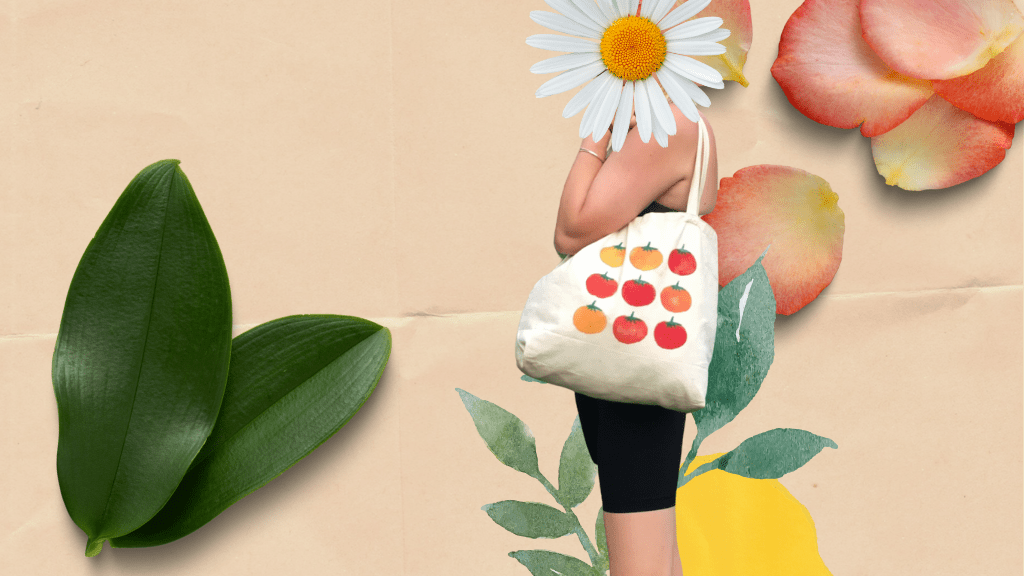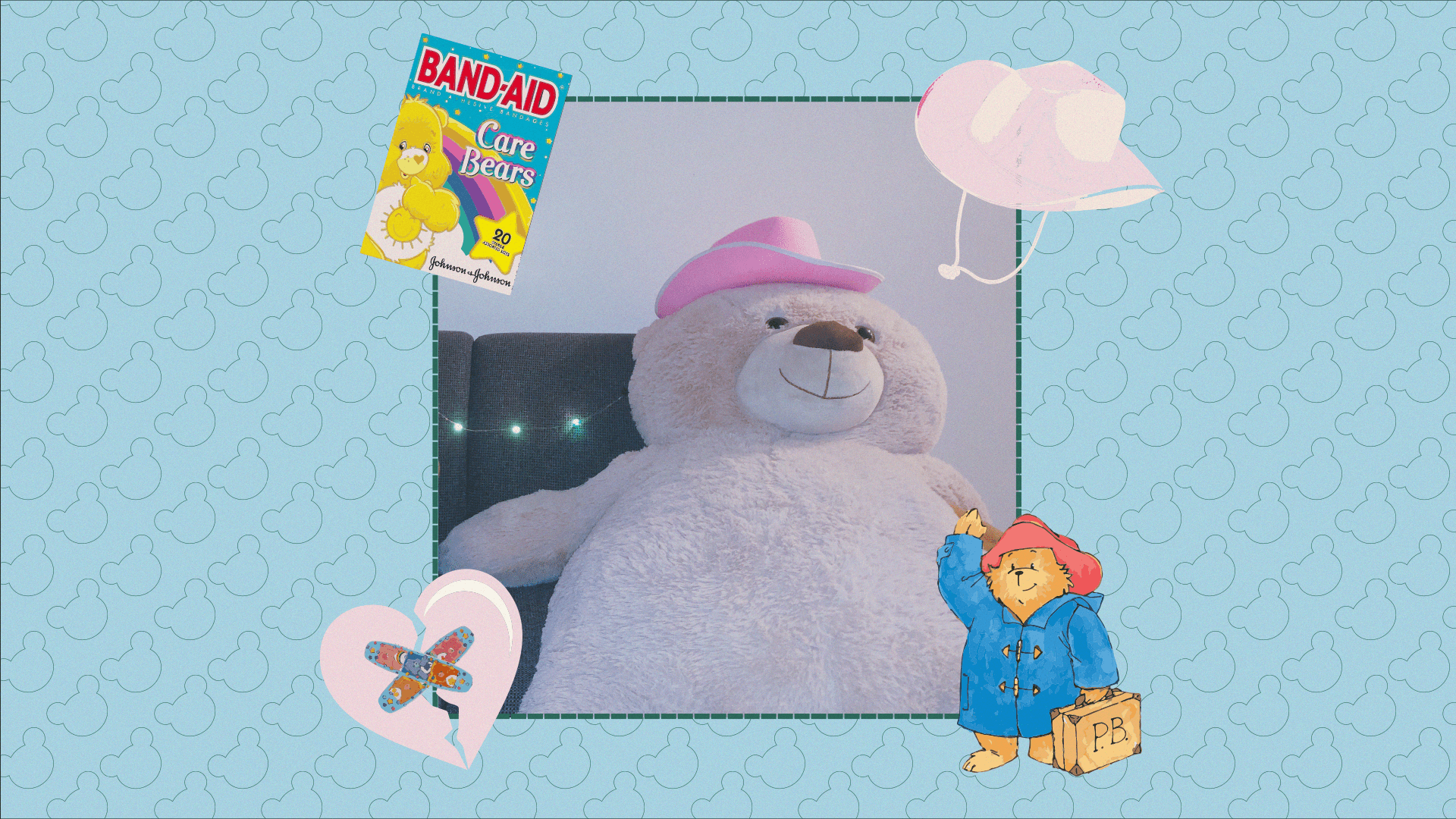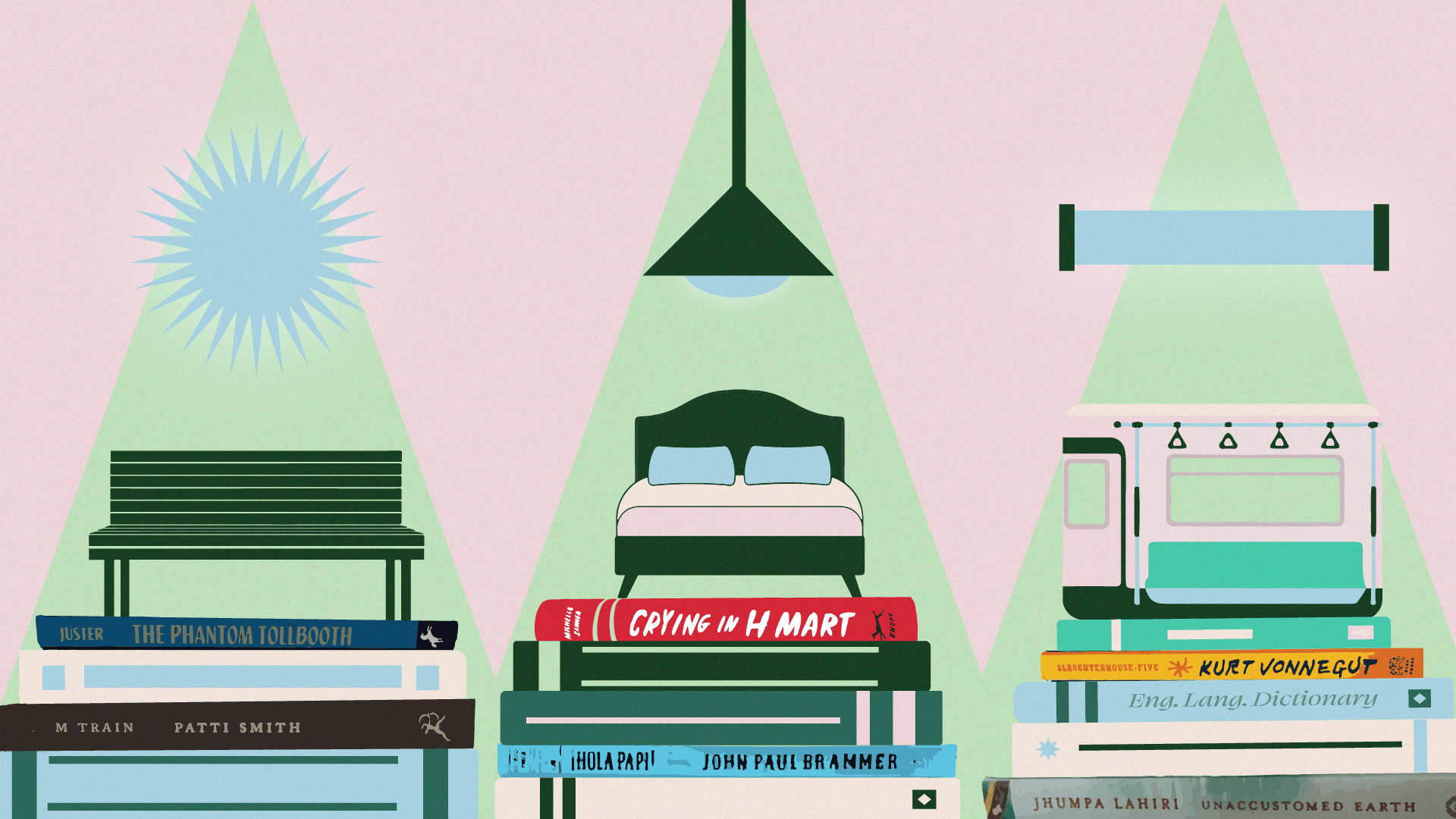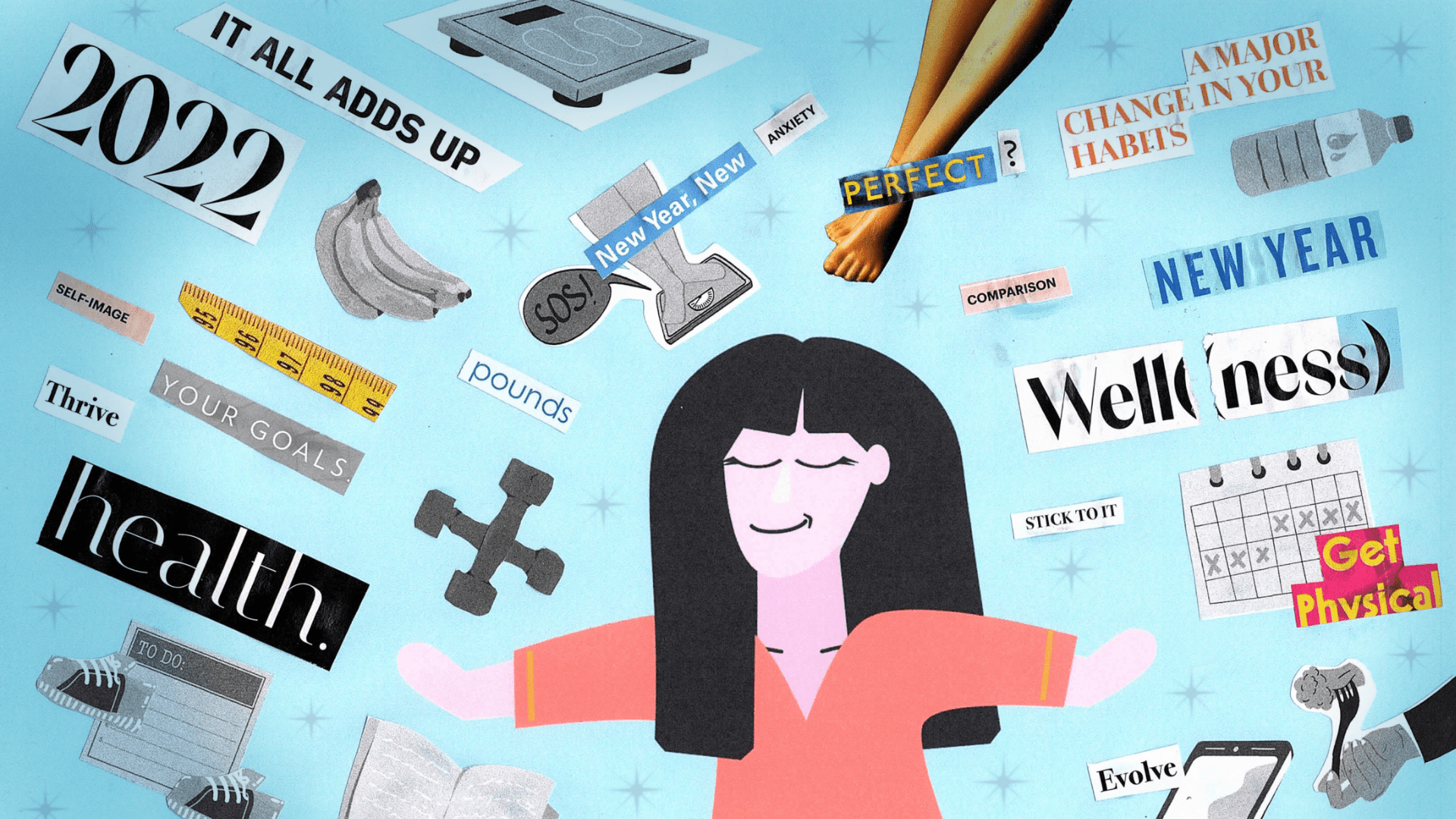
A Pandemic Breakup Changed My Relationship to Clothes and Community
Comfy clothing has a strong reputation as post-breakup attire. Mine offered a new way to understand my body and loved ones.
I wore very little this summer. Girlfriend Collective sports bras, Everlane leggings or bike shorts, minimal jewelry, and often no makeup. Within the constraints of prudish American legality, I entered a reopened Chicago by pulling my hair out of my face and into a scrunchie — baring it all. If I could have walked around topless, I would have.
I spent the first 12 months of the pandemic sheltering in place with my boyfriend. Then we broke up, and I was grieving more things than I know how to name. I laid around my parents’ house in bras and underwear, regularly evoking a “come on, man, put some clothes on” from my justifiably uncomfortable father. I left the house wearing little more than that with no real concern about being underdressed for park gatherings with friends I hadn’t seen in months or outdoor patio drinks with coworkers I’d only met over Zoom. In hindsight, people took notice — and so did I.
After 15 years of self-consciously wearing high necklines to cover my large chest and long sleeves to hide my fleshy arms, there was something surreal about catching myself in the mirror, half-dressed and ready to walk out the door. My own reflection, much like everything else in 2021, inspired a resounding “how the hell did I get here?”
Well, the “here” of stretch-only clothing is a place shared by the masses.
Athleisure sales (which were already doing pretty great) grew 84 percent in the first year of the pandemic according to Forbes. I can confirm that in a suffocating year, the last thing I was interested in was wearing denim. Hours of Zoom calls from bed will do that to a person. But even in the post-lockdown “new normal” characterized by masked in-person events and days spent socially-distanced out and about — I was one of many people continuing to sport a sports bra as a top.
The New York Times published an article about this exact phenomenon in July, noting the blurred distinctions between public and private life as we emerged from the isolation of winter. The warmer weather and the vaccine came with “a startling degree of license about what passes for street wear,” wrote Guy Trebay. In a story about the rise of public displays of affection in New York published around the same time, the reporter describes a “sense of bawdy, gaudy rebirth” in a packed bar as folks enjoyed their own and other bodies for the first time in months.
Despite all the evidence that I am indeed a part of this pandemic-triggered urge for comfort and liberation, my decision to dress exclusively in spandex this summer was not, initially, a conscious choice. In the middle of May, when my boyfriend and I went on a “break” a week before our first “couples trip,” I packed a small carry-on bag to temporarily move in with my parents with clothes I figured I’d need no matter how the break landed.
It landed in a split and I landed in LA, alone, with four summer outfits chosen haphazardly: two sports bras, two pairs of leggings, and one romper in case I did anything ‘fancy.’ Though I didn’t know it then, I would live out of that bag for a total of six weeks until I returned to my shared apartment to officially move out. At which point, for once, my nostalgia worked in favor of getting rid of things. Furniture, tchotchkes, books, and clothing — in an act of self-preservation, I donated or sold much of what reminded me of the prior two years of my relationship. I was left with little more than the contents of my carry-on. I’d spent the first year of the pandemic watching news outlets report on sinking relationships and the rise in divorce rates, grateful to be staying afloat with my boyfriend, only to find myself, at the start of year two, completely unmoored with only one site of reprieve: my wardrobe.
Snaking on a bra and bike shorts was by far the easiest part of my day compared to the constant processing of spiral staircases labeled “what if I’d,” “what if he’d,” and “why didn’t we…” If my internal life was that warped, complicated, and cloudy, I felt lucky that dressing my body could be kept so simple.
My own reflection, much like everything else in 2021, inspired a resounding “how the hell did I get here?”
Of course, at any point this summer I could have diversified my uniform. I could have committed to one additional sundress or pair of jean shorts, but there was a certain honesty to my apparel I quickly began to appreciate. It was as if I stepped out of the silo of my relationship and the isolation of the pandemic and, simply by wearing what I’d packed in my carry-on, said, “Here I am. Take a look.” A lucky by-product was that everyone I spent my days with bore witness to the evolving state of my well-being through the changing shape of my frame covered only by skin-tight apparel. Grief pulled my flesh tighter, alcohol moved my stomach further out. My skin glowed from daily salt baths and the release of any and all toxins stored in my tear ducts. Miraculously (and I do mean miraculously), I’ve made it to 29 years old with a fairly healthy relationship with my weight, so it was through a lens of curiosity that I observed my changing shape and accepted comments (“you look thin,” “your eyes are so red,” “you look worse today”) from family and friends that made it clear I was being watched — taken care of by being seen in the immensity of what I was feeling.
Beyond well-intentioned comments, that care manifested as post-breakup solidarity. There was the acquaintance from Instagram who told me if I moved to her city we could be friends; the ex from college who told me it got better; the former boss who sent me an article about Saturn Return; the rabbi who taught me how to do a mikvah; the friend from high school who rubbed my back for hours; the nurse who gave me a hug and said “don’t cry over men,” making me laugh through my tears.
It’s not lost on me that if my ex and I had split up even two weeks earlier, Chicago mandates would have prevented me from maskless indoor gatherings and most of my friends would have only just been getting vaccinated. Instead, the city completely opened to me and in turn, me to it. Strangers and friends alike knew how sad I was just by looking at me, and showed up without my asking to share their life experience as an offering, a gesture, a small effort to make me feel less alone.
It may be naïve to attempt to make meaning from circumstances largely outside of my control, and it’s certainly a losing battle to try to create any semblance of “order,” but in a time that feels so surreal, I’ve found some comfort knowing that people have been mending from heartbreaks for millennia during and in the aftermath of wars, financial collapses, the dissolution of empires, and even other pandemics. While none of this feels real to me (not Covid, not the loss of my partner, not the climate crisis), being seen and seeing others offers an essential reminder that wherever “here” is, we’re not alone. Even if this is my first time in such a dark moment, it’s certainly not humanity’s.
…there was a certain honesty to my apparel I quickly began to appreciate.
It’s December now, there’s a chill in the air, and I have to start covering up again, which is okay (four months out and about in underwear was enough). When it comes to clothing trends, I’m glad that folks traded in belted pants for boxers, that some people started wearing makeup for themselves, and others stopped wearing it altogether. I’m glad that we largely retired the notion that athleisure is “basic” and not, in fact, for anyone who wants to be able to move their body without hindrance.
But as the self-centered fog of heartbreak starts to clear, ever so slowly, I worry about going another year without seeing people, really seeing people, in their joy, their grief, their day-to-day malaise, as I was seen in mine this summer by virtue of donning my accidental uniform. I’m worried about what a second pandemic winter will mean for me and the people I love. I don’t know what anything means or how we are where we are, but I desperately want to show up for others, to catch the little clues that folks need support, to rub someone’s back when they need it without them asking me — simply because I noticed they didn’t fully get dressed that day.


